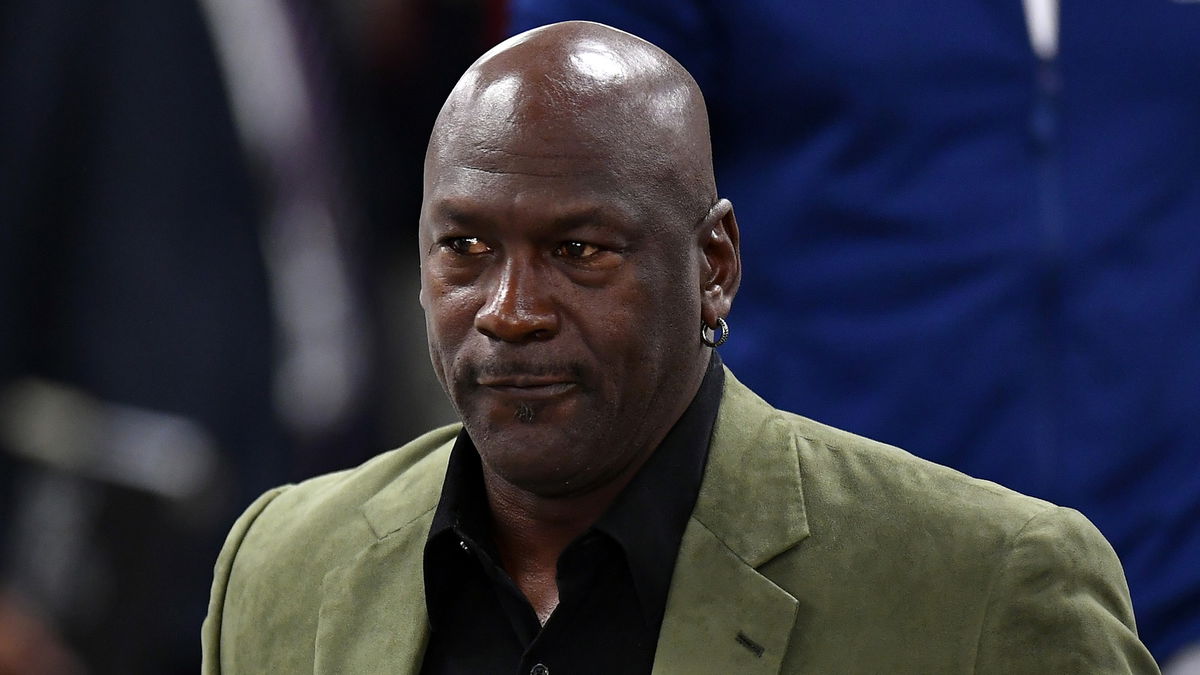
Getty
PARIS, FRANCE – JANUARY 24: Michael Jordan attends a press conference before the NBA Paris Game match between Charlotte Hornets and Milwaukee Bucks on January 24, 2020 in Paris, France. (Photo by Aurelien Meunier/Getty Images)

Getty
PARIS, FRANCE – JANUARY 24: Michael Jordan attends a press conference before the NBA Paris Game match between Charlotte Hornets and Milwaukee Bucks on January 24, 2020 in Paris, France. (Photo by Aurelien Meunier/Getty Images)
The antitrust lawsuit involving 23XI Racing and Front Row Motorsports, going against NASCAR, has kept the garage buzzing since its filing last October. Co-owners like Michael Jordan and Denny Hamlin argue the charter system stifles competition, while NASCAR defends its model that has built team equity of over $1.5 billion since 2016. As the December 1 trial nears, both sides dig in, with filings showing no easy path forward. Yet, the push for talks reveals deeper fractures in the sport’s structure.
Watch What’s Trending Now!
Recent moves highlight how mediation efforts are hitting roadblocks, testing the resolve of all involved. NASCAR, owned by the France family, insists on honoring existing agreements with 13 other teams that signed on last year. The holdouts, however, see anti-competitive clauses in those deals. This standoff sets the stage for heated exchanges in court documents.
The pushback on settlement talks
NASCAR recently moved to involve a judge in settlement discussions, seeking a judicial conference to potentially resolve the dispute. But 23XI Racing, co-owned by Michael Jordan and Denny Hamlin, along with Front Row Motorsports, quickly pushed back. In their response, they argued for sticking with the current mediator, who has deep experience in sports league matters.
23XI: “It seems NASCAR is not happy with the diagnosis and wants to seek a second opinion. Plaintiffs submit that…starting over with a judicial
officer who will have to learn the case background and the parties’ history is less likely, not more likely, to lead to resolution.”
— Adam Stern (@A_S12) October 7, 2025
“NASCAR has not responded to those requests and instead filed this motion. It seems NASCAR is not happy with the diagnosis and wants to seek a second opinion. Plaintiffs submit that with a mere eight weeks until trial, starting over with a judicial officer who will have to learn the case background and the parties history is less likely, not more likely, to lead to resolution, which all interested parties appear to agree is in their collective best interests,” 23XI stated in the filing, as shared by reporter Jeff Gluck.
They emphasized that with only eight weeks until the December 1 trial, switching to a new judicial officer unfamiliar with the case’s history would hinder progress. This resistance stems from the teams’ October 2024 lawsuit accusing NASCAR of anti-competitive practices in charter agreements, a claim the sanctioning body denies while honoring deals with other teams.
While 23XI resists NASCAR’s mediation shift, broader voices in the sport echo a shared concern over the uncertainty. This collective push underscores the need for clarity before the courtroom drama escalates.
Teams rally for pre-trial settlement
Owners from non-suing teams have stepped up, emphasizing the charter system’s role in sustaining NASCAR‘s economic foundation. With charters fetching around $45 million on the market, the lawsuit’s outcome threatens this stability, prompting calls for a resolution to avoid disrupting sponsors, drivers, and broadcasters. Filed in the U.S. District Court in Charlotte, the case has already seen one unproductive mediation session earlier this year.
Joe Gibbs, whose team aligns technically with 23XI, highlighted the stakes in his court statement: “I have repeatedly expressed my strong desire for the charter system to become permanent in nature, and I continue to hold out hope that will one day be the case. Doing so would, in my view, solidify the financial health and well-being of the Cup teams and the sport as a whole.”
This plea stems from Gibbs’ fears that prolonged litigation could erode the model’s viability, especially as charters tied to NASCAR’s broadcast deals expire in 2031. His words aim to bridge divides, urging permanence to lock in long-term security amid the suit’s anti-competitive claims.
Richard Childress added weight with his direct assessment: “Without charters, the team ownership model is unsustainable.” As head of Richard Childress Racing, a non-plaintiff outfit, Childress draws from decades in the sport, where charters shifted teams from precarious independents to valued assets. By stressing unsustainability, he spotlights how a loss for plaintiffs could strip charters entirely, per Judge Kenneth Bell’s warnings, pushing for settlement to preserve the framework before the December 1 trial alters everything.


